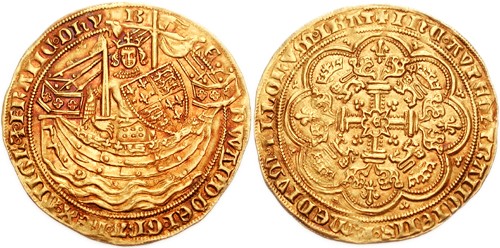editions:
[1922]
[html]
[archv]
notes: [Th] [G&S] [Dent] [wbks] [rw] [images] [hyper]
Delaney: [331] Useen: [] [cp] maps: [other] [*]
notes: [Th] [G&S] [Dent] [wbks] [rw] [images] [hyper]
Delaney: [331] Useen: [] [cp] maps: [other] [*]
<
fd:
[331]
— The play begins. A player comes on under the shadow, made up in the castoff mail of a court buck, a wellset man with a bass voice. It is the ghost, the king, a king and no king, and the player is Shakespeare who has studied Hamlet all the years of his life which were not vanity in order to play the part of the spectre. He speaks the words to Burbage, the young player who stands before him beyond the rack of cerecloth, calling him by a name:
SD skips to I.v
in 1600, WS was 36yo, Burbage 33, AnnH was 44, Hamnet would have been 15?
"rack of cerecloth" cf Pepper's ghost p144?
Hamlet II.ii "A silence in the heavens, the rack stand still"
Hamlet, I am thy father's spirit
Hamlet I.v "I am thy father's spirit"
bidding him list. To a son he speaks, the son of his soul, the prince, young Hamlet and to the son of his body, Hamnet Shakespeare, who has died in Stratford that his namesake may live for ever.
the names Hamlet and Hamnet were interchangeable
— Is it possible that that player Shakespeare, a ghost by absence, and in the vesture of buried Denmark, a ghost by death, speaking his own words to his own son's name (had Hamnet Shakespeare lived he would have been prince Hamlet's twin) is it possible, I want to know, or probable that he did not draw or foresee the logical conclusion of those premises: you are the dispossessed son: I am the murdered father: your mother is the guilty queen. Ann Shakespeare, born Hathaway?
"ghost by absence" (WS was absentee father during Hamnet's childhood)
Hamlet I.i "In which the majesty of buried Denmark"
"dispossessed son" Homer's Telemachus
— But this prying into the family life of a great man, Russell began impatiently.
AE's stories were non-autobiographical [eg]
Art thou there, truepenny?
Hamlet appeals to the ghost for support, swearing the others to silence; SD appeals to the muse??
— Interesting only to the parish clerk. I mean, we have the plays. I mean when we read the poetry of King Lear what is it to us how the poet lived? As for living, our servants can do that for us, Villiers de l'Isle has said. Peeping and prying into greenroom gossip of the day, the poet's drinking, the poet's debts. We have King Lear: and it is immortal.
AE and Best both say "I mean"
the quote is highly inapt for AE
[French]
(is AE so scrupulous about gossip about SD's drinking and debts?)
Mr Best's face, appealed to, agreed.
Flow over them with your waves and with your waters, Mananaan, Mananaan MacLir...
SD is remembering AE's curse, playing the Druid in his own play "Deirdre" in 1902
cf p38: "Airs romped around him, nipping and eager airs. They are coming, waves. The whitemaned seahorses, champing, brightwindbridled, the steeds of Mananaan."
How now, sirrah, that pound he lent you when you were hungry?
cf p31: "Russell, one guinea"
Marry, I wanted it.
Take thou this noble.
 |
| cited in WS |
Go to! You spent most of it in Georgina Johnson's bed, clergyman's daughter. Agenbite of inwit.
mysteries: etext of AE's play?
[DD 01:37-03:31]
[DD 00:00-01:25]
[IM 11:14-13:24]
[LV1 12:58-15:39]
[LV2 11:10-13:23]
No comments:
Post a Comment